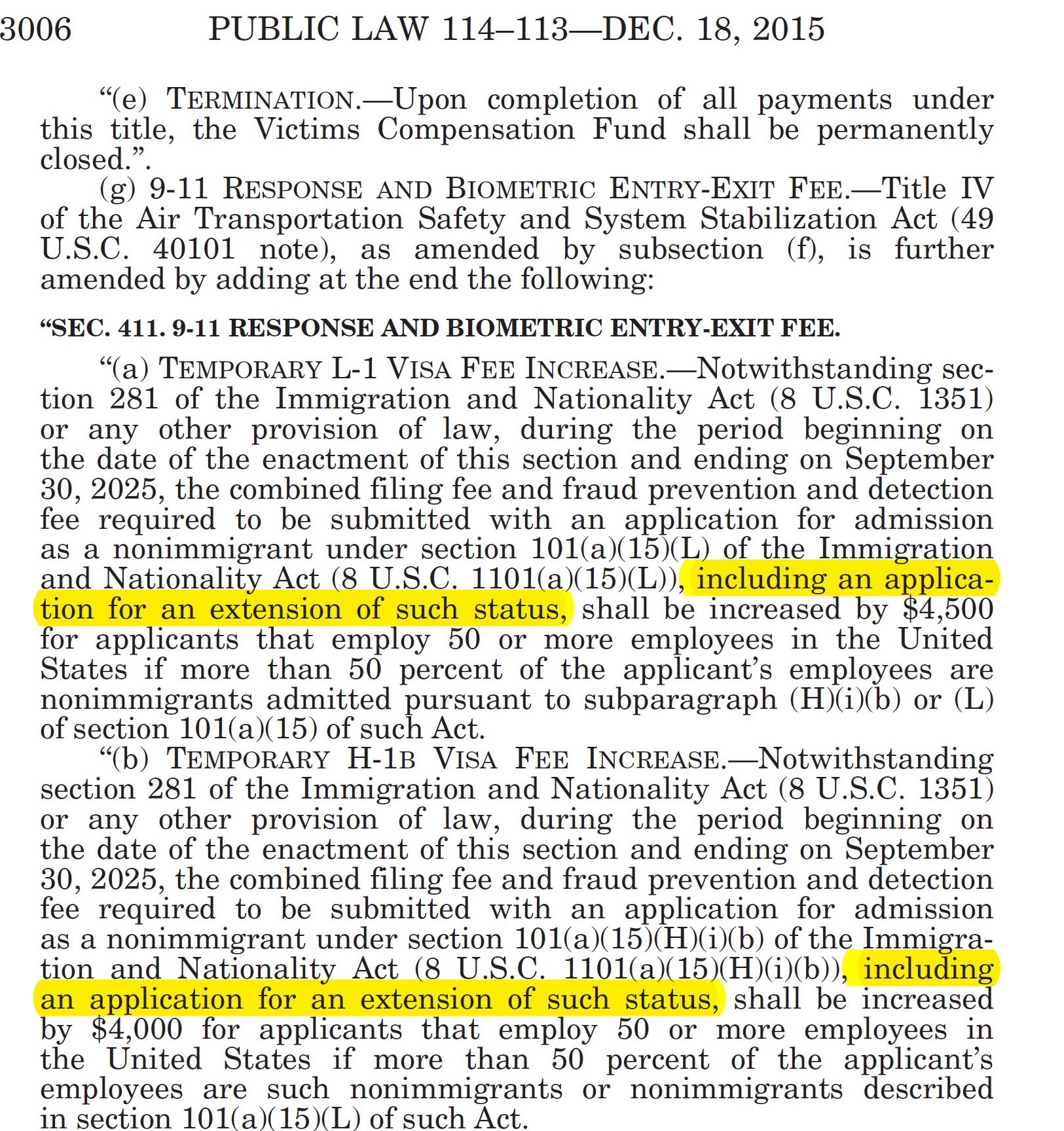 Based on the language in the proposed rule, it appears that the USCIS has taken the position that the language in the law, which imposes the $4,000 and $4,500 filing fees, was not interpreted properly in the past, and that based on the USCIS' new interpretation of the language contained within the law imposing these fees, the $4,000 and $4,500 filing fees should be required to be paid by employers when filing extension petitions for H-1B and L-1 workers. Given that the USCIS has for years imposed the $4,000 (H-1B) and $4,500 (L-1) filing fees only for initial H-1B and L-1 petition filings, respectively, it seems unusual for the government to now changing its interpretation.
ITServe Alliance along with its members filed a lawsuit on January 26, 2020 seeking the USCIS to refund the $4000/$4500 Border Security fee claiming that the fee is required only for those who are seeing an entry to the United States for the first time and does not apply to the Change of Employers. The lawsuit was seeking the court to force the USCIS to refund more than $350 million which they have collected in Public Law fee.
Now the USCIS is reinterpreting the language of the rule after more than 4 years to force the qualified employers to pay the Public Law fee for every petition that they file from October 2, 2020.
Based on the language in the proposed rule, it appears that the USCIS has taken the position that the language in the law, which imposes the $4,000 and $4,500 filing fees, was not interpreted properly in the past, and that based on the USCIS' new interpretation of the language contained within the law imposing these fees, the $4,000 and $4,500 filing fees should be required to be paid by employers when filing extension petitions for H-1B and L-1 workers. Given that the USCIS has for years imposed the $4,000 (H-1B) and $4,500 (L-1) filing fees only for initial H-1B and L-1 petition filings, respectively, it seems unusual for the government to now changing its interpretation.
ITServe Alliance along with its members filed a lawsuit on January 26, 2020 seeking the USCIS to refund the $4000/$4500 Border Security fee claiming that the fee is required only for those who are seeing an entry to the United States for the first time and does not apply to the Change of Employers. The lawsuit was seeking the court to force the USCIS to refund more than $350 million which they have collected in Public Law fee.
Now the USCIS is reinterpreting the language of the rule after more than 4 years to force the qualified employers to pay the Public Law fee for every petition that they file from October 2, 2020.
Subscribe to Our Newsletter
Access insight, news and updates from across the Thomas V. Allen




 Appointment With
Appointment With